






































































Evolved.

Perfectly designed to thrive in its environment. Adaptable enough to evolve with the times. Building smart for a solid future. It’s second nature at KLJ.
NG .CO M










































































Perfectly designed to thrive in its environment. Adaptable enough to evolve with the times. Building smart for a solid future. It’s second nature at KLJ.
NG .CO M


At ONE, our mission is to enrich the lives of our employees and exceed the expectations of our clients. We’re a company with heart. We’re engineers. We’re designers. We’re the people behind the heating, cooling, plumbing, electrical and lighting systems in the buildings you live, work and play in.
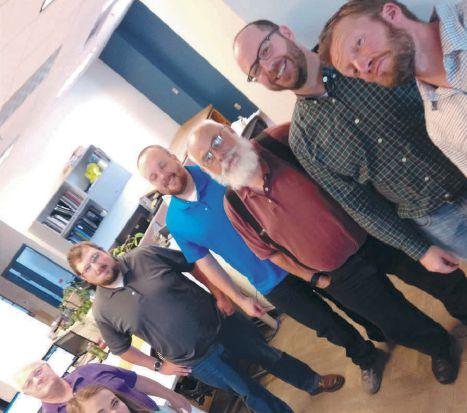
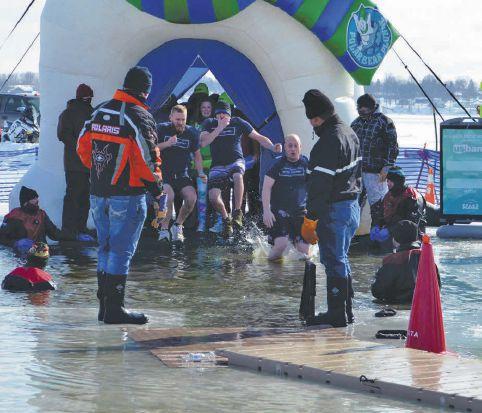
We are so humbled to have been selected again as one of the Top 50 Places To Work!
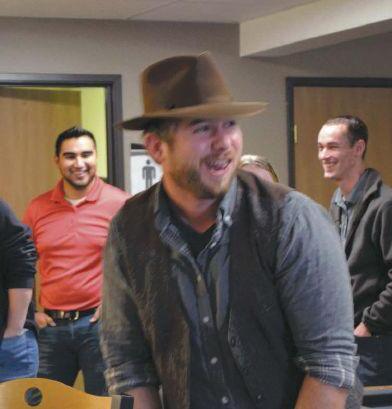
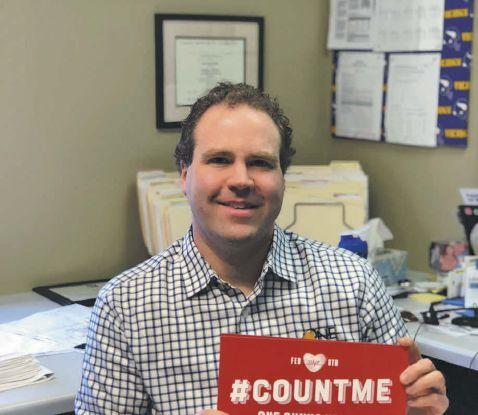
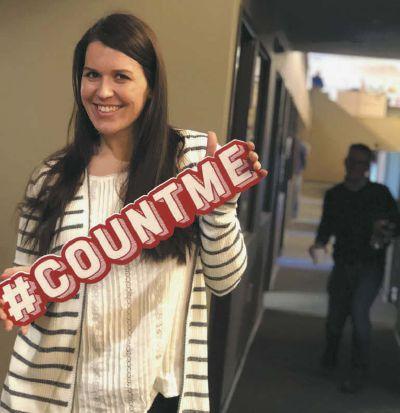
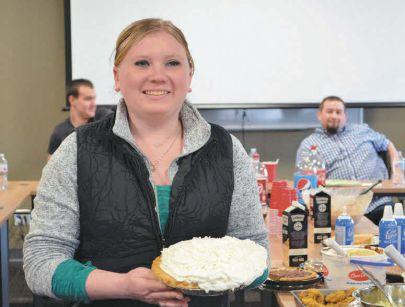
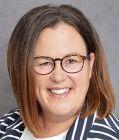
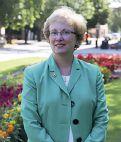

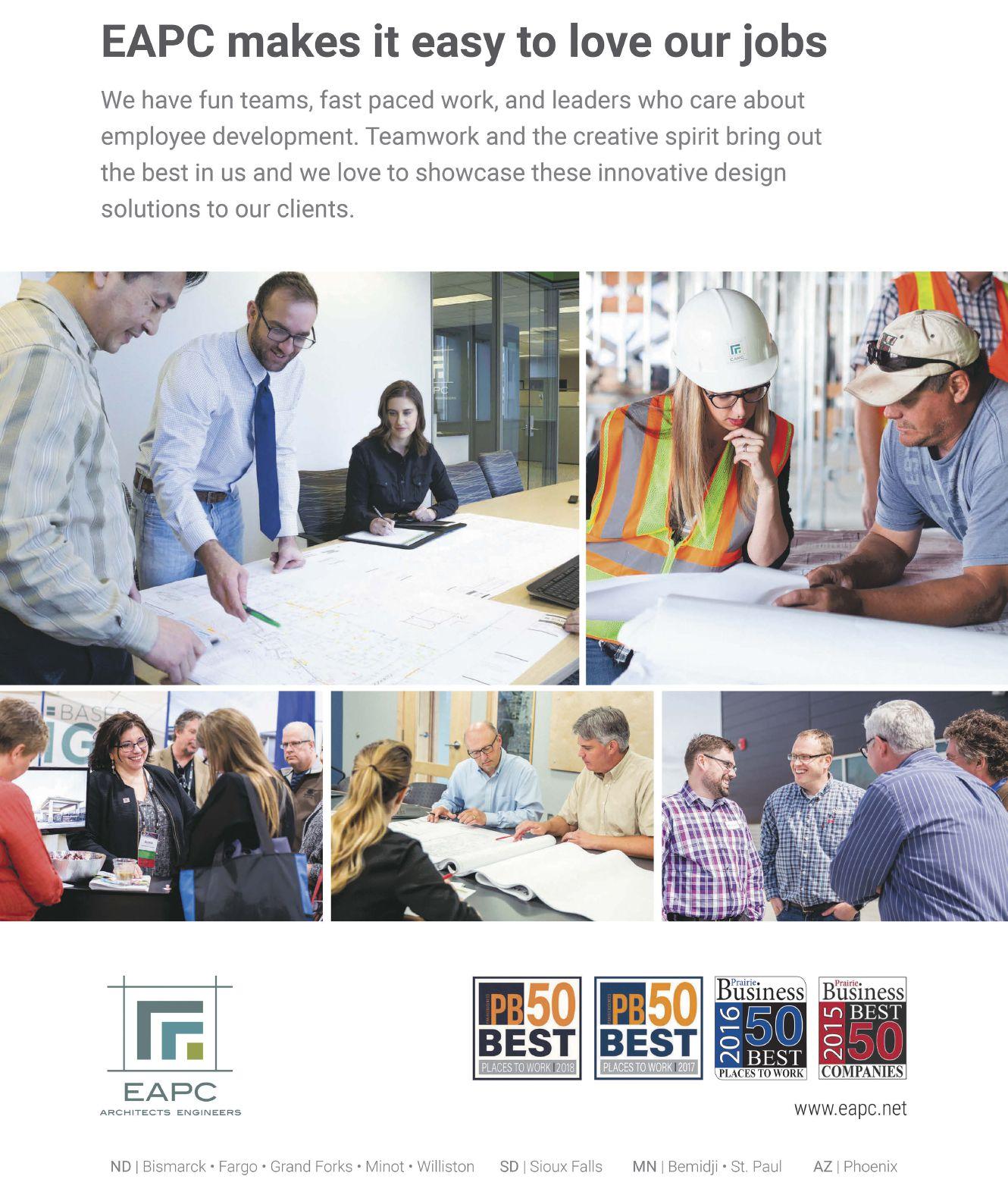
The evidence is in: you can do good work and make a great living in Prairie Business’ communities. That wasn’t always the case. Not so long ago, young people in search of good jobs and good benefits often went elsewhere. That’s much less true today, and to see why, Prairie Business’ 2018 50 Best Places to Work feature is a great place to start.
What a spectacular lineup of organizations made the list. And as we worked through the more than 1,300 nominations submitted by employees, what an impressive assortment of benefits we discovered at the 50 Best.
For example, “EMC Insurance is one of a few companies that still offers a pension and a 401(k) plan,” an EMC employee wrote. Likewise, “3M’s Parental Leave Policy of up to 10 weeks paid and up to another 10 weeks unpaid is an incredible benefit,” wrote a 3M Brookings employee.
At AE2S in Grand Forks, N.D., “the biggest set-apart is 100 percent employerpaid family health insurance,” wrote one employee. “That is something that you do not often see in this day and age.”
H2M in Fargo boasts “open PTO,” an employee noted. “Take time if you need it, work remotely if necessary, no one’s tracking the hours you’re out of the office.”
At Moore Engineering in West Fargo, “we are 100 percent employee-owned, which means that all full-time employees own a piece of the company,” wrote one worker. Additionally, the Moore Community Building Initiative provides paid time off and some or all of an employee’s expenses for an approved volunteer initiative.
Then there’s Stoneridge Software in Barnesville, Minn., where “every office has beer on tap,” an employee noted.
“That speaks to the trust Stoneridge puts in its employees. I work from home two days a week; again, a sign of trust. Unlimited vacation; have I said trust enough?”
With benefits such as these, our 50 Best organizations can be trusted to keep drawing professionals to our region for many decades to come.
Good reading, Tom Dennis
I welcome your feedback and story ideas. Call me at 701-780-1276 or email me at tdennis@prairiebusinessmagazine.com.

PUBLISHER KORRIE WENZEL
AD DIRECTOR STACI LORD
EDITOR
TOM DENNIS
CIRCULATION MANAGER BETH BOHLMAN
LAYOUT DESIGN ANNA HINSVERK ANDY GOBLE
ACCOUNT MANAGERS
NICHOLE ERTMAN
800.477.6572 ext. 1162 nertman@prairiebusinessmagazine.com
JENNIFER LEROUX OLSZEWSKI
800.477.6572 ext. 1167 jlolszewski@prairiebusinessmagazine.com
Prairie Business magazine is published monthly by the Grand Forks Herald and Forum Communications Company with offices at 375 2nd Avenue North, Grand Forks, ND 58203. Subscriptions are available free of charge. Back issue quantities are limited and subject to availability ($2/copy prepaid). The opinions of writers featured in Prairie Business are their own. Unsolicited manuscripts, photographs, artwork are encouraged but will not be returned without a self-addressed, stamped envelope.
SUBSCRIPTIONS
Subscriptions are free www.prairiebusinessmagazine.com
ADDRESS CORRECTIONS
Prairie Business magazine Box 6008 Grand Forks, ND 58206-6008
Beth Bohlman: bbohlman@prairiebusinessmagazine.com
ONLINE www.prairiebusinessmagazine.com


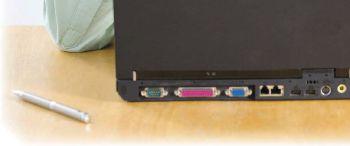
FARGO, N.D. – Most studies of our society show a direct correlation between a person’s income and that person’s level of formal education. A high school graduate on average earns more than a high school dropout, and having a college degree generally leads to a higher income than does having only a high school diploma.
But while that income-education relationship statistically holds true for the population as a whole, what the reports tend to overlook is the income-skill relationship. Classroom education in and of itself does not entitle a person to a higher income. Only skill and the amount a person produces compared to others in the same field will lead to more income.
More education should provide an individual with the knowledge, information and ability to produce more, but like anything in life, the person has to use what they know to earn more. Just because I got good grades and was able to achieve academic excellence doesn’t mean I am more valuable than my neighbor who dropped out of school to support his family.
In fact, my neighbor – because of his real-life experiences – may have better skills than I do when it comes to getting ahead in life, regardless of each of our chosen professions.
At one time in my career, I evaluated a subset
of a company’s employees using regression analysis to try to uncover why certain folks earned more than others in the work group. The analysis clearly showed that the employees with the least education earned the most.
Of course, this is contrary to most information published. So, not satisfied with this result, I expanded the statistical data base, and it became clear that the higher-income-earners’ success factors were hours worked, previous related experience (experience working in the job as opposed to education) and family status.
Another example: When employed by a multinational firm doing seismic testing for oil and paying for land leases, I was asked to help the company better manage and more quickly reconcile its cash flow. Again, I worked up a large regression analysis based on a number of variables. I spent countless hours performing the evaluations. I calculated average checkfloat time, average check amount and a host of other valuables.
When I presented my findings to the business financial manager, she was not impressed! My education had given me a set of skills, but in the real world, I had not uncovered much better or more reliable techniques to get the right answer.
What mattered was simple communication, and that was my recommendation: Have
the people in the field tell you the amount of checks written in one day, factor in float, and you can predict your cash needs.
My formal education had given me a set of “professional” skills to use. But in the end, the right answer was to look at experience and use common sense.
Over the years, we have supported a variety of individual educational endeavors; some turned out well, others not so well. Without formally learning about accounting, taxes, finance, marketing, business law and similar topics, a business owner-manager would be at an extreme disadvantage.
In every organization that I’m currently directly involved with, the top management all have the highest level of formal education and, in general, work the hardest to get the job done.
The level of education an individual achieves can help build the person’s skills to allow the person to earn more income. But the skills that are applicable to the job and the effort that a person puts forth are the factors that ultimately will determine a person’s individual earnings.
Matthew Mohr CEO, Dacotah Paper Co. Fargo, N.D.
WAHPETON, N.D. –
Attracting women to the manufacturing industry is critical due to the area’s shortage of skilled workers. As important, women add diversity and bring new perspectives to strategic thinking that can positively impact culture, efficiency and profitability.
At WCCO Belting, such slogans are more than just words. We have more women on our production floor than ever before. In fact, women make up 45 percent of our production team, compared to the national average of 29 percent. Women operate equipment, run forklifts, package pallets and perform all other activities within our facility.
While targeting women wasn’t a planned approach for WCCO Belting, we saw significant improvements after we deliberately refocused on employee empowerment and engagement. Since 2012, WCCO Belting is producing 20 percent more product with 20 percent fewer employees. Here’s how it all came about.
• Creating a work environment equally appealing to both men and women has been a longstanding priority of WCCO Belting. For example, we’ve learned how providing set shifts versus rotating shifts can greatly improve employees’ work-life balance
Set shifts make it much easier for employees – especially single parents – to structure their personal lives and coordinate childcare. Making progressive strategic decisions like this does put pressure on leadership to plan and to make concessions when necessary, but for us, the pros have far outweighed the cons. In 2012, WCCO Belting’s turnover rate was up to 75 percent. Between 2014 and 2018, that number was reduced to less than 3 percent.
• Another key to success is driving gender bias out of the company. We make a conscious effort to promote gender-neutral job assignments.
Men and women train side-by-side after they’re hired to show WCCO Belting’s belief in respect and equality. This also supports the assimilation of women into a manufacturing environment.
Critical to female empowerment is letting women’s voices be heard. In workplaces that are predominantly male, it’s not uncommon for women to feel uncomfortable about sharing ideas. In fact, a report by Deloitte and the Manufacturing Institute states that 51 percent of women believe that the culture of the manufacturing industry is biased toward men.
A woman’s ability to creatively problem-solve can directly impact the bottom line, but it is the responsibility of her employer to encourage feedback and provide a receptive environment in which to submit ideas.
Implementing a process-improvement program is a great step toward developing a diverse and involved workplace. An effective program will be driven from the top down and structured to succeed.
Since WCCO Belting launched its own program in 2014, more than 2,000 ideas have been submitted, and over half of them have been implemented.
Unlike a traditional process-improvement program (which uses cost-savings analyses to determine implementation), ours sees employees’ ideas get discussed on a weekly basis by a team of 20 production and nonproduction personnel. Not only does this show leadership’s trust in employees to make smart suggestions about their own activities, but also it lets new employees make an immediate impact.
• About five years ago, WCCO Belting decided to prioritize training to improve product quality and cross-train employees. Since then, we’ve developed more than 50 internal training courses, and leadership continues to allocate resources to this area.
We also continue to use effective external resources such as emotional-intelligence training and diversity-and-inclusion training.
In response, employee engagement soared.
These programs, combined with the uniqueness of our products and processes, give everyone the same opportunity to advance in their career. If a person has the willingness to learn and the determination to be a productive employee, he or she will succeed at WCCO Belting.
• Our founder had a remarkable ability to inspire and challenge people to be successful in roles they thought were outside of their capability. Promoting professional growth is still a part of WCCO Belting’s culture today, and all employees are provided opportunities to grow and encouraged to pursue additional responsibilities. Today, two-thirds of our production supervisors are women.
If your business isn’t promoting manufacturing careers to women, you are discounting a large pool of talented candidates who could add significant value to your operation. Diverse thinking and behavioral styles can shape your organization for the better and result in a considerable return on investment.
Jean Voorhees Vice President Business Development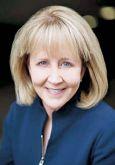 WCCO Belting, Inc. Wahpeton, N.D. wccobelt.com
WCCO Belting, Inc. Wahpeton, N.D. wccobelt.com





Economic development is the backbone that supports a growing, thriving state, and North Dakota is one of the clearest examples of that idea. By harnessing the state’s bountiful natural resources, it has become an example in how to grow a strong economy.
One of the major ways this has been made possible is through renewable energy. Renewable energy is good for the environment, but it’s also good for the economy.
Located in central North Dakota, Foxtail Wind Farm is a standout example of the economic power of renewable energy. Construction is ongoing, and expected to be completed in 2019. This project will:
• Provide low-cost wind energy to nearly 80,000 homes
• Generate millions of dollars in local lease payments and property taxes
• Span 20,000 acres, 99 percent of which will remain available for agricultural production
• Be completed in partnership with local community contractor Wanzek Construction
The future looks bright for North Dakota as we build new wind projects throughout the state and surrounding region. The cost of wind power has significantly declined as turbine technology has improved. Given current low prices and available tax credits, it is an ideal time to invest in wind to benefit customers.
We find that the cost to construct a wind farm is offset by the future fuel savings, providing our customers with clean energy at an affordable cost for years to come. Which is why we have announced plans to grow our wind portfolio 55 percent by the end of 2021. Our plans include 12 new wind farms in seven states that will add nearly 3,700 megawatts of new wind capacity to our system.
To learn more, visit xcelenergy.com/Community.


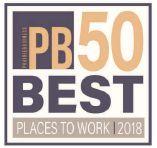

Editor’s note: Earlier this summer, Bemidji City Councilor Ron Johnson was elected to serve as president of the Coalition of Greater Minnesota Cities. The nonprofit, nonpartisan Coalition represents more than 90 cities outside of the Twin Cities metro area. It has long been considered one of the most active and highest-profile organizations to represent rural communities in St. Paul.

As president, Johnson will help direct efforts to inform state legislators on issues vital to Greater Minnesota, such as Local Government Aid, economic development, transportation and environmental policy.
In this Q&A, he talks about his background, his plans for the Coalition and what the group’s work can do for Minnesota businesses.
Well, I’m actually a Bemidji boy, born and raised here. Like lots of other people, I left for a while for school and the military (the Minnesota Army National Guard), then found myself coming back to graduate from Bemidji State University.
I’m a marketing person and a graphic designer by trade. In the Twin Cities, I went to Brown Institute for Radio and Television, and I found myself coming back to Bemidji in 1979 to help get the PBS publictelevision station started.
Yes. I work with Lakeland PBS; that’s my day job, and I’m the design and promotion manager. We have about 30 employees; we started with just six, including me.
And of course, we started with just a half-a-day of broadcasting -- sign on at 3, sign off at 11, one channel. Now, we have six channels that we broadcast out of here all 24 hours.

I decided to run for Bemidji City Council back in 2000. And then when I got elected, a longtime council member who had been on for a number of years – he was in his fifth term – pulled me aside after a meeting and said, “You know, you can get involved with a lot of great groups when you are on the Council. But if you want to get involved with the one group that means the most to Bemidji and our residents, that would be the Coalition.”
He invited me down to the Coalition’s conference in Wenonah back in 2001, and I went with him and our mayor at the time. That was my first experience with the Coalition, and I’ve been going to those conferences ever since. I’ve only missed one in the past 18 years.
Bemidji City Council member Ron Johnson (right) was elected president of the Coalition of Greater Minnesota Cities on July 27 at the coalition’s annual conference in Mankato. He replaced Dave Smiglewski (left), mayor of Granite Falls.
IMAGE: BEMIDJI PIONEER

The Coalition of Greater Minnesota Cities’ new president plans to lead in accordance with the organization’s motto: ‘Advancing the issues that make Minnesota strong’
Ron Johnson president Coalition of Greater Minnesota Cities BEMIDJI, MN








Initially, the area that I focused on was annexation.
When I got on the City Council, annexation was a big issue. We just hadn’t been growing as a city; from 1990 to 2000, according to the census, Bemidji had grown by less than 4 percent. Meanwhile, the surrounding area had grown by more than 400 percent.
So we had a lot of buildup of townships neighboring our city, and it was really costing us in terms of efficient delivery of services. We actually had some areas that were totally surrounded by the city; they needed to be brought into the city, as Minnesota law allows.
So we got really aggressive about annexation – and not coincidentally, annexation was and is a top priority for the Coalition.
When something is a problem for Greater Minnesota, it’s generally a problem for the Coalition, because that’s what the Coalition is all about.
The other big issue was and is Local Government Aid. If you have followed that issue, you know that LGA was designed to help cities that have greater needs than what they could reasonably cover in property taxes.
(Editor’s note: As Minnesota Public Radio has described, “the cities that came to depend on LGA also tended to serve as regional hubs, providing services for people not paying into property tax coffers. The vision was that no matter where you happened to live in Minnesota, the quality of services would remain basically constant.”)
The Minnesota Miracle came out of that. The system restricts cities from levying local sales and income taxes, but in return, sends state money to cities to help them pay for services.
Today, we’re trying to get LGA funding back to where it was in 2002, which is about the time I came on the Bemidji Council. Back then, our general fund was just a little shy of $7 million, and our state aid was 54 percent of that.
Now, our general fund is a little over $11 million, and our state aid is 32 percent. So it’s not even quite a third; clearly, it hasn’t kept up.
That has been a very big focus, and again, LGA has been a top priority for the Coalition as well. We spend the biggest part of our lobbying budget in trying to to maintain that funding and if possible, to get it back up to the level that it used to be at.
First, LGA itself is very important to Greater Minnesota businesses. The program helps keep property taxes low enough so that businesses aren’t scared to look at your community.
Second, besides LGA and annexation, another of the Coalition’s top priorities is transportation, which is especially important the further away you get from the Twin Cities metro area.
Bemidji is in that position, and we know if we’re going to attract industry and businesses, we have to have a strong, strong road system and one that connects with the main arteries in Minnesota.
So, the Corridors of Commerce highwayfunding program of the Minnesota Department of Commerce is something that the Coalition is pushing, and that program and others can benefit businesses across the state.
We’re also dealing with workforce housing. We’ve been lobbying for that through our teamwork with the Greater Minnesota Partnership.
But what we’re finding now is that child care has become almost a bigger problem for businesses than workforce housing. For example, Anderson Fabrics up in Blackduck, Minn., can bus people in for work. But if those people don’t have child care, they’re not going to get on the bus in the first place.
Last year, Prairie Business did a big article on DigiKey in Thief River Falls, and I know that child care is an issue up there, too. Child care providers are at a big disadvantage in the rural areas, especially when the workforce shortage makes it so very hard to pay a competitive wage.
One possibility is that there could be some incentive for the businesses themselves. For example, a company such as DigiKey (or even a small company) could start its own day-care operation, and maybe they would get a tax credit or some other sort of incentive for doing so.
I know those companies don’t want to be in the child care business. But if they have the space for it, and if doing so would prove to be a strong recruiting and retention tool, then maybe it’s worth looking at.
Furthermore, think of the challenges of finding childcare if you’re a parent who does shift work. Child care in that time frame gets even more complicated and crazy, and making it available would be even more of a benefit.
So a company could appeal to not only the 8-to-5 worker, but also the people doing evening shifts.
We met this summer, and we talked about five priority areas: LGA and property tax relief, annexation and land use, economic development, environment and energy, and transportation.
And I’ve been hearing a lot more about child care, both in Bemidji as well as at Coalition meetings. It’s an economic development issue for sure.
After the primary election, the political lay of the land will start to become clear. We know we’re going to have a new governor, and we have many, many seats in the House and Senate up for grabs. So a lot will depend on who gets in.
A.You know, when I was sitting in the audience this summer, waiting to take the gavel of the Coalition as the new president, I thought back to my first meeting all those years ago. I was wondering, how many other people who were there this summer would also have been in the room back then?
Not many, I’m sure. Maybe a handful, and of course the board has completely changed.
But that’s the thing. You can completely change the board, the staff and the lobbyists of this organization –but the mission and the reputation of the Coalition of Greater Minnesota Cities remain.
That’s because the Coalition’s ability to do good work for the cities continues.
And that’s a sign of a good organization – when you could have all the players change, yet you still retain your focus.
Our Senior Water Resource Engineer, Tom, loves a challenge. That’s why when designing a solution for stormwater retention/detention, Tom got creative. By creating an eco-friendly solution over a traditional pump station, this portion of flood control provided an innovative approach and saved the Souris River Joint Board millions of dollars in the process.

Turning his passion into progress, that’s what Tom is most proud of. And we are, too.
To learn more about the Centennial Pond/Perkett Ditch project, visit our website at www.ackerman-estvold.com/projects

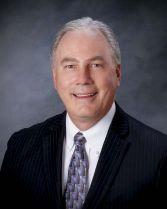

Yes. I got my undergrad at NDSU.
Really, a high-school guidance counselor pointed me in that direction. I still remember; Jim Bjorklund was his name. I’d been thinking, well, maybe I’ll be an electrician; in fact, I probably would have been a finish carpenter. I liked working with wood.
But he said, you know, given your grades and scores, why don’t you give college a try? If it doesn’t work out, you can always fall back on a two-year associate degree or something.
I thought, Yeah, well, I’ll give it a shot. And who knows?
It stuck, I guess.
So I started as a field engineer for Montana Dakota Utilities out in Dickinson, N.D. I worked my way up to supervising, then moved to Bismarck and ultimately worked on our electric system control center, which is where we coordinate with all of our power plants.
And then about 15 years after getting my engineering degree, I thought I should go for the MBA and complement my technical background.
That really added to my financial skills.
And I’ll add one more chapter, which is that at about the 25year mark in my career, I got the chance to attend the two-month Harvard Advanced Management Program. It’s a very international event – about 150 people, about a third of whom are U.S.-based and two-thirds are international students.
The reason I even bring that up is your question about “Lessons learned.”
First, people sometimes ask me, what did you learn in engineering school? My answer always is, it’s a method of problem solving, and not necessarily by getting out a calculator.
As my career advanced, it involved working with people – people of different backgrounds, different stakeholders and constituents, finding a way to solve multi-dimensional problems.
And at Harvard, one of my takeaways from there was, “You’ve got to make sure you have the right people on the bus.” The right folks in the right roles – that’s how effective an organization can be when it’s done correctly, or how ineffective if it’s not done very well.
I learned technical skills as an engineer, and financial skills with my MBA. But I also took history, English and writing; and for me, those skills in speaking and presentation and ideas are some of the most important today.
At MDU, we always look for folks who are just very well-rounded. And of course, if you’re a team player and you provide value, other teams see that, too. And your ability to get things done is highly important in our business.
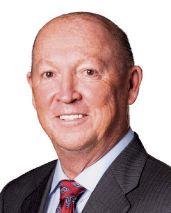 Altru Health System Grand Forks, N.D.
Altru Health System Grand Forks, N.D.
People’s pathways are all different. During my undergraduate years, I switched from accounting to pre-law to pre-medicine. I finally figured out that science was my interest. So I got my B.S. in biology from Mayville State University, and then applied to physical therapy school.
I got accepted at the Mayo Clinic’s program and proceeded down that route.
What I’ve realized is that as I progressed, I had a broader and broader view of helping people and influencing change. In other words, when you’re working with a patient, it’s one on one. When you’re a supervisor, you’re supervising a team of people, which I found very rewarding.
So it’s bigger change, and it becomes more so as you work your way through levels of leadership.
But I’m still seeing patients; I’ve always kept that piece of my career. Typically a few times a month, I’ll be in the clinic for a few hours, treating patients. It keeps me grounded.
It was the last day of class at the Mayo Clinic. Our program director was speaking to us, and of course we all felt pretty good about ourselves, now that we were graduating.
And he told us very specifically, “You need to understand that the knowledge you have right now is just the tip of the iceberg.
“There is so much more to learn. And it is outside of the textbooks.”
He was talking about our interaction with patients, with families, with communities. So he really encouraged us to be open and to keep learning. I’ve always remembered that; I completed my MBA a year ago with that in mind.
When I look back, I see that my core knowledge of physical therapy was vital. But I also think of the things I’ve learned outside of textbooks, and I remember the program director saying just that. It has served me well.
WHERE DID YOU GO TO COLLEGE?
University of North Dakota
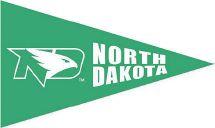
WHAT DID YOU MAJOR IN?
My undergraduate degree was in business, and I have a graduate MBA with emphasis in finance.
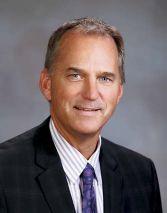

HOW HAS YOUR MAJOR INFLUENCED YOUR CAREER?
Simply put, my education was the foundation for my professional development and incredibly instrumental in the opportunities and achievements that I have experienced in my career.
The most important lesson I learned in college was the role of continuing education and being a lifelong learner. I also learned the importance of discussing ideas and developing my own philosophies while respecting the views and opinions of others – and just being exposed to the different views and backgrounds of so many different people was so beneficial to me.
I value my upbringing, having grown up a small town in North Dakota. But being exposed to learning, new opportunities and different views and backgrounds of so many different people was essential to my personal and professional development.
No surprise, my interest and strongest subject in college was mathematics, which is why I pursued a career in banking and finance.
That being said, as I’ve gotten older, I’ve wished that I would have had more appreciation for liberal arts and the development of my “life other than numbers.” At the time, I was focused on getting a job, rather than understanding that life is long, interesting and challenging in so many different ways.
Today, I find myself more interested in learning about life through the eyes of others.
Yes. Arizona State in Tempe. I went there in 1982, graduated in 1986. My father bought Warner & Co. in 1974. I’d worked at the company when I was in high school, so I had an idea that I wanted to go into the insurance industry. But I also wanted to go away to school.

I had several friends who were going to ASU at the time, and when I found out that the university had an insurance major, it was just a logical choice.
Absolutely. That was my real takeaway from college. I was around people from all over the United States who had different backgrounds, and the chance to get to know them was fantastic.
University of North Dakota (Harvard of the North)

WHAT DID YOU MAJOR IN?
Business Administration
My degree definitely narrowed the focus of my initial job search, which ultimately led me to a career in business, specifically health insurance.
Some of the biggest lessons were learned in group projects and assignments. We usually studied a business case as a team,
Even here in North Dakota, there are a lot of ASU graduates, from policy directors to industrial builders. Kurt Kollman, president of Construction Supply in Fargo, he and I were friends and went to school together at Arizona State. Jon Wanzek of Wanzek Construction, he’s a friend of mine from grade school, he attended Arizona State.
(Former North Dakota Board of Higher Education member) Grant Shaft and I went to college together. We were both on the Greek steering committee, so I know Grant from college.
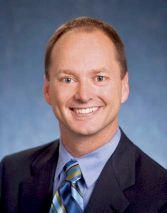
The current governor of Arizona and I were friends. He was in the Greek system, and he ended up becoming the CEO of Cold Stone Creamery before he became governor.
Sean Minor, now of Sean Minor Wines in California; he was a fraternity brother. Andy Spade; he was one of my best friends my freshman year. He went to ASU and was a marketing major, he met Kate when they were selling clothes to get through school. They went to New York and were phenomenally successful.
The actor David Spade, Andy’s brother; he was a fraternity brother, too. He was a year younger than I was.
The point is not that all of these people are celebrities. The point is, that’s college. It’s a chance to get to know all kinds of people, and the way to do that is to get involved.
That’s my advice to students: First, graduate with the least amount of debt that you can. Second, if it’s possible to go away to school, do so. If not, then absolutely take advantage of a great education right in your town – but don’t live at home. Repeat: Do. Not. Live. At. Home.
And finally, get involved – with sports, with clubs, with a fraternity or sorority. That’s where you’ll build your leadership and relationship skills, and those are the skills you’ll be using for the rest of your life.
reached a conclusion and then divided the work of writing the paper and presenting the results to the class.
We learned valuable teamwork skills from these projects, including how to make the most of each team member’s strengths (in writing, presenting and so on).
We also learned that our grade was a team grade. I remember being given one of our team’s final papers at 11 p.m. to be delivered to our professor the next day at 9 a.m. because the team member said she could not attend class that day. When I opened the folder, I saw that the report was full of typos, errors, pages upside down and so on. I worked most of the night re-doing the paper.
The lessons learned – both positive and negative – from those projects have been very applicable and beneficial in my career, as almost all of our work requires team efforts.
Being responsible and accountable is vital, and leveraging employee strengths is part of our everyday life.
Even though I pursued a business degree at UND, I took a significant number of liberal arts classes. Literature, fine arts, humanities, history and film classes were very interesting to me, and they helped me become a more well-rounded individual in important areas outside of my business studies.
At BCBSND, we have people with liberal arts degrees throughout our organization, and they’re working in many areas ranging from corporate communications to important executive functions. We value diversity in our work force, and that includes diversity in education. Good people from all educational backgrounds add value to an organization.
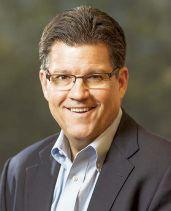
















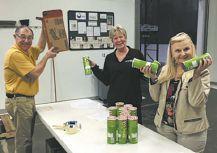
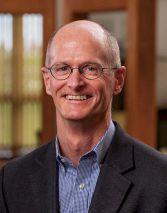
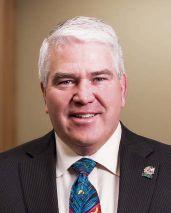
I grew up in Watford City, went to Watford City High and then the University of North Dakota, where I was a banking and finance major.

My family were bankers. So when I went to college, I really didn’t know what I wanted to do with my life, but I figured majoring in banking and finance couldn’t hurt, given my family’s background.
One of the first classes I took was Accounting 101. And I hadn’t had any bookkeeping or accounting in high school, so it was very difficult for me. I had to read every chapter three or four times and figure out debits and credits and all of that sort of thing.
But once I got it, I took basically as much accounting as I could stand. I almost was an accounting major.
And, I think that of all of the classes that I took, accounting classes and business law probably were the best, in terms of my future business career.
Speech classes were very good, too. Getting confidence in speaking in front of people is a very good thing. It’s a skill that goes a long way in life, because invariably, you’re going to have to speak in front of people when you’re in business, whether your audience is employees or customers or a civic group.
Absolutely. I love to talk to kids who are going off to college, and the advice I give them is what I just said:
First, take as much accounting as you can stand. Even if you’re going to be a lawyer or doctor or dentist, having some business and accounting background is a very good idea.
Second, take speech and English classes, because being a good communicator is a good idea as well.
And one other thing: Try not to look like a college freshman! Dress nicely when you go to class; don’t wear sweats and an old T-shirt. Look a little more professional.
You’ll have a professor who looks professional, and the students who show up and look like they mean business, I think, do better.
After all, when you to to a job interview, you’ll want to look like the job you want. Dress for the part, in other words. That habit begins early, and college is a great time to start.
University of Iowa (the only school in Iowa )

WHAT DID YOU MAJOR IN?
Accounting and finance
HOW HAS YOUR MAJOR INFLUENCED YOUR CAREER?
Accounting and Finance, together, can be a powerful combination. Accounting helps one understand how to put together financial statements, while finance helps one understand how to read those statements and interpret what they’re telling you.
Understanding both of these disciplines gave me a real head start in the banking business.
As described above, while the understanding of these two disciplines have been very helpful to me, two of the more important lessons learned in college were:
n Critical thinking skills, which include an appreciation of the need for a variety of perspectives
n An appreciation for learning and a willingness to always learn new things
If I was talking with a student who was majoring in a liberal-arts field, I would say, “Pursue your passion!”
Life is too short not to do so. Specific skills and/or industry knowledge can be learned at any time.
If you set the bar at competence, how do you reach excellence?

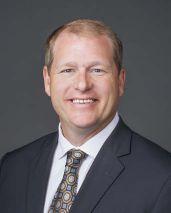
I earned my first two degrees from Dickinson State University in Dickinson, N.D., where I competed as a team roper on the rodeo team.
Initially, my career plans were to work on our family farm in Hettinger, N.D., so I got an associate degree in agriculture. Then I decided to pursue a bachelor’s degree in business, and that’s when I realized the farm may not be the best fit for me.
I later earned my executive MBA from the University of Mary in Bismarck while working at DCN.
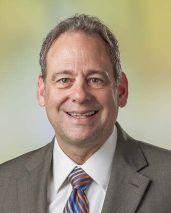
Tremendously. Though it didn’t teach me everything I needed to do my job, it taught me how to work through the process of learning new concepts. The tech industry is constantly changing, and I’m fortunate to get to apply the skills I learned in college every day in my career.
One of the most valuable lessons I learned was patience. Four years doesn’t seem like a long time at this point in my life, but when I was 18, I remember thinking, “There is no way I’ll have the stick-toitiveness to see this through.”
Another valuable lesson was learning how to work with people who have personalities very different from my own. The ability to be an effective team player has been useful throughout my career.
The industry I work in is highly technical, so we’re a bit light on liberal arts majors. But I will say DCN has become a stronger organization as we’ve hired more people with liberal arts backgrounds. Their approach to finding solutions and communicating brings an additional perspective to our organizational discussions, helping us become more well-rounded.
Personally, I always urge kids to pursue their passion and not get too wrapped up in what their major is, because more than likely, life and/or God will change the course they’re on anyway.
I think the important part of college is seeing it through to the end and earning a degree regardless of its type, field or concentration.
Essentia Health-West Fargo, N.D.
WHERE DID YOU GO TO COLLEGE, AND WHAT DID YOU MAJOR IN?
I majored in business administration at Minnesota State University Moorhead, Moorhead, Minn. and completed a master’s in healthcare administration at the University of Colorado in Denver.
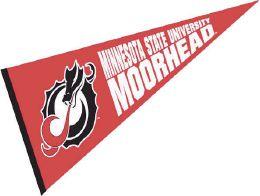
HOW HAS YOUR COLLEGE MAJOR INFLUENCED YOUR CAREER?
I decided to pursue business administration, and in the process, I discovered my interest in health care through participating in health care administration courses offered at Concordia College in Moorhead.
WHAT ARE SOME OF THE MOST USEFUL LESSONS YOU LEARNED IN COLLEGE?
It’s very important to learn a variety of skills, but one that I’m glad to have developed in college was the ability to work in teams. People do need technical skills, but they also need people skills. Almost everything that a person accomplishes comes about through working with others and in teams.
WHAT ARE YOUR THOUGHTS ABOUT THE LIBERAL ARTS?
No matter what your major, college prepares you for various careers. Choose something that suits what you want to spend your life doing.
We spend so much time at work that it’s really important to work in an area we enjoy and where we can make a difference. I have one adult child who has completed college and two who are enrolled in college. And while I have suggested courses that will help them make a living, I’ve also encouraged them to diversify their learning and pursue other topics that will help them develop and understand other points of view.
For the thoughts of more area CEOs on college, please turn to Page 70.


18
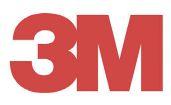
HEADQUARTERS: Brookings, S.D. (plant); St. Paul, Minn. (corporate)


EMPLOYEES:
91,000 nationwide, 1,120 Brookings
DESCRIPTION: 3M Brookings serves as 3M’s largest health care manufacturing plant. Our employees are experts in medical product manufacturing and new product development. For more than 46 years, the plant has continually applied 3M science to produce complex medical dressings and tapes, surgical drapes, biological indicators and food safety products. Our employees work together 7 days a week/24 hours a day to produce more than 1,700 products that help health care professionals improve quality of care.
WEBSITE: 3M.com
THIS LIST OF GREAT WORKPLACES HAS BECOME A STAPLE OF PRAIRIE BUSINESS’ COVERAGE, AWAITED EAGERLY BY THE NOMINEES AND THE EMPLOYEES WHO NOMINATED THEM.

CONGRATULATIONS TO ALL OF THIS YEAR’S WINNERS, CHOSEN FROM MORE THAN 1,300 NOMINATIONS. THEY ARE EXCELLENT ROLE MODELS FOR FORWARD-THINKING, TEAM-DRIVEN SUCCESS.
HEADQUARTERS: Grand Forks, N.D.


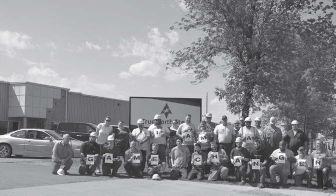

EMPLOYEES: 273
DESCRIPTION: AE2S’s primary focus is to help ensure clean drinking water, safe wastewater disposal and smart water resource development through planning, financing, designing and building infrastructure.
Our team of professionals is dedicated to making a positive impact for our clients by doing things that matter.






AE2S also recognizes the impact of our employees and their work, and in 2018 became 100 percent Employee Owned.



WEBSITE: AE2S.com

HEADQUARTERS: Grand Forks, N.D.
EMPLOYEES: 811
DESCRIPTION: Alerus is an integrated financial services firm specializing in financial guidance. With a broad array of banking, mortgage, retirement, employee benefits and wealth management products and services, Alerus partners with individuals, families and businesses to help clients achieve financial confidence.
WEBSITE: alerus.com
HEADQUARTERS: Fargo, N.D.
EMPLOYEES: 65
DESCRIPTION: Apex Engineering Group was founded with our clients in mind. We focus on the fundamentals, providing clients with engineering solutions and employees ingrained with a deep-rooted belief that it’s only the best solution if it’s also the best experience.
We are proud to have earned the trust and support of our partners across the region.
Apex has offices located in Bismarck, Dickinson and Fargo, N.D., and Detroit Lakes, Minn.
WEBSITE: ApexEngGroup.com
HEADQUARTERS:
Bismarck, N.D.
EMPLOYEES: 115
DESCRIPTION: Applied Engineering combines talent and technology to solve its customers’ unique challenges. Applied provides product design, engineering and manufacturing consulting services, as well as IT and programming services and large-format digital printing. Applied also sells industry-leading engineering software and provides training and support from its offices throughout North Dakota, South Dakota and Minnesota.
Applied is 100 percent employee-owned and strives to be the company people come to for the best engineering and IT work.
WEBSITE: go-applied.com
HEADQUARTERS:
Perham, Minn.

EMPLOYEES: 800
DESCRIPTION: Established in 1950, Arvig has grown from a small, family-owned telephone company to one of the largest independent telecommunications providers in the nation. Arvig is a full-service telecommunications provider, delivering cutting-edge technology to residential and business customers throughout Minnesota for more than 65 years.
In addition to providing Internet, television and local telephone services, Arvig also provides business telephone systems, managed services, security and more.
WEBSITE: arvig.com

HEADQUARTERS: Dickinson, N.D.
EMPLOYEES: 210
DESCRIPTION: Baker Boy is a manufacturer of premium bakery products for foodservice, bakery, convenience store and private-label customers.
Over the past 60 years, Baker Boy has grown from a small bakery into a sophisticated and innovative production facility that bakes breads, buns, rolls, donuts, pastries, sweet rolls, cookies, croissants, biscuits and much more.

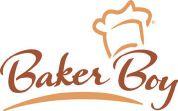
Baker Boy’s rich tradition is a product of its talented, passionate and inventive professional staff, who are committed to baking excellence.
WEBSITE: bakerboy.com

HEADQUARTERS: Minot, N.D. (plant); St. Brieux, Saskatchewan (corporate)
EMPLOYEES: 54 in Minot, 976 worldwide
DESCRIPTION: Bourgault Industries is an agricultural equipment manufacturer that has grown to become a world leader in the design and production of leading-edge seeding, fertilizing and tillage equipment.
The U.S. Division is headquartered in Minot, N.D., with product distribution throughout the Midwest and Northern Plains and exported around the world.
Their success is a result of their focus on the development of people, and leading edge designs that provide the highest value to their customers.
WEBSITE: bourgault.com
HEADQUARTERS: Grand Forks, N.D.
EMPLOYEES: 88
DESCRIPTION: “Do Something Constructive” is more than a clever saying for the team at Construction Engineers; it is the founding principle for how our company approaches each and every day.
Headquartered in Grand Forks, N.D., Construction Engineers provides construction management and design-build services for a commercial division focusing on education, health care and public facilities and an industrial division that builds processing plants and infrastructure systems.
WEBSITE: constructionengineers.com


HEADQUARTERS: Decentralized, with banks located in North and South Dakota
EMPLOYEES:
153
DESCRIPTION: Cornerstone Bank provides an expansive product offering while staying true to its mission of providing access to financial experts who give straight answers and the best possible financial options.
Cornerstone’s offerings include business and personal loans, deposits and cash management services, online and mobile banking.
With 14 locations in North and South Dakota, Cornerstone Bank’s financial experts not only help customers get ahead, but also take the time to figure out where they want to go.
WEBSITE: cornerstonebanks.net
HEADQUARTERS: Fargo, N.D.
EMPLOYEES:
1,774 companywide, 281 in Fargo
DESCRIPTION: At Eide Bailly, we’re trustworthy business advisors with proud local roots. For more than 100 years, we’ve offered a wide variety of traditional and specialty services and have grown alongside our clients to become one of America’s top 25 accounting firms, with 33 offices in 14 states. With a dedication to our community and a culture of passion and fun, we promise clients an experience that is second to none.
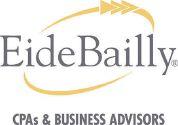
WEBSITE: eidebailly.com
HEADQUARTERS: Grand Forks, N.D.
EMPLOYEES: 120
DESCRIPTION: EAPC is a design consulting firm offering architecture, engineering, wind energy, industrial and business-excellence services from 12 offices throughout the United States and Argentina.
EAPC has been in business for more than 50 years and remains focused on the client’s needs with a view toward creative, sustainable solutions that surpass project goals in form and function.

Careful planning, design expertise and hard work deliver positive results that clients are truly happy with long after the ribbon cutting.
WEBSITE: eapc.net




HEADQUARTERS: Bismarck, N.D. (local), Des Moines, Iowa (national)
EMPLOYEES: 63 (local), 2,500 (national)
DESCRIPTION: Organized in 1911 to write workers’ compensation protection in Iowa, EMC Insurance Companies is now one of the top 60 property/casualty organizations in the United States and is one of the largest in Iowa, based on net written premium.
EMC has 20 locations and more than 2,500 team members. With more than 100 years of experience, we’ve proven our customers can Count on EMC®.
WEBSITE: emcins.com

HEADQUARTERS: Watford City, N.D.
EMPLOYEES: 573
DESCRIPTION: From its humble beginnings in 1910, this community bank has been delivering on its mission of helping dreams come true, one customer at a time. Today, four generations strong, the Stenehjem family continues to lead the company with a focus on long-term customer relationships. They operate 27 locations throughout North Dakota, Minnesota and Arizona.
WEBSITE: FirstIntlBank.com
HEADQUARTERS: Sioux Falls, S.D.

EMPLOYEES: 32

DESCRIPTION: Epicosity is an ideas company specializing in creative, video production, web development, digital strategy, and media. We have clients in 23 states and five countries. We’re not a mega-agency – and we’re proud of that. We’re a tight group of idea people who execute nimbly and effectively. Founded in 2008 as Epic Multimedia and rebranded as Epicosity in 2013, we’ve grown from a small video production firm to a full-service international agency in just a few years.
WEBSITE: epicosity.com

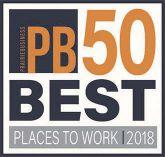











Fisher Industries is a family of businesses that serves all aspects of the aggregate industry. We are a unified team working together to cement our place in the industry. Led by visionaries who dream big and are not afraid to think outside the box, we continue to welcome challenges and tackle the toughest jobs. Bridges, levees, roads, and walls; we do it all!



HEADQUARTERS: Dickinson, N.D.
EMPLOYEES: 1,030
DESCRIPTION: We began as a small aggregate business in rural North Dakota and evolved into an all-encompassing aggregate and land development enterprise. Built on a solid foundation of ethics and integrity, Fisher Industries is a vertically integrated family of businesses led by visionaries who dream big and are not afraid to think outside the box.
We continue to welcome challenges and tackle the industry’s toughest jobs. Bridges, levees, roads and walls; we do it all!
WEBSITE: fisherind.com
HEADQUARTERS: Minot, N.D.
EMPLOYEES: 174
DESCRIPTION: First Western Bank & Trust is proud to maintain longevity with our personnel by offering exceptional pay and benefits, flexibility for family commitments and a friendly, professional atmosphere.

We empower our employees to volunteer for charitable causes and community events during work hours through our Outreach Committee, organized by our staff. Our Employee Committee provides seasonal and festive events to engage beyond work duties.
We strive to promote within our company and provide employees access to continuing education.
WEBSITE: FirstWestern.bank
HEADQUARTERS: Fargo, N.D.
EMPLOYEES: 630
DESCRIPTION: At Gate City Bank, we believe in making a difference in our communities and in the lives of our team members and customers, For a Better Way of Life®. We offer unique benefits to our team members – benefits such as paid maternity and paternity leave, generous PTO packages, paid volunteer time, mission leave assistance and more.
Gate City Bank is a $2.1 billion mutual community bank with 36 convenient banking offices across North Dakota and west central Minnesota.
WEBSITE: GateCityBank.com

HEADQUARTERS: Fargo, N.D.
EMPLOYEES: 17
DESCRIPTION: H2M is an integrated marketing and communications firm with a concentration in Brand Development. We succeed through honesty and transparency – with both clients and employees.

H2M emphasizes being a “proof of performance” agency by always measuring success on pure business objectives. We embrace the wisdom that all good things for us can come only from using our talents in the service of the needs of others.
WEBSITE: h2m.biz
HEADQUARTERS: Minot, N.D. (North Dakota), New York City (corporate)
EMPLOYEES: 486 (North Dakota)
DESCRIPTION: Hess is a leading global independent energy company engaged in the exploration and production of crude oil and natural gas.
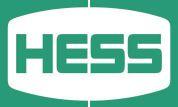
We are one of the largest producers of oil and gas in North Dakota and have a leading position in the Bakken.
Hess works with suppliers, landowners and communities to find new approaches and technologies that enable us to operate safely, improve efficiencies, protect the environment and make a positive impact on all we touch.
WEBSITE: Hess.com
HEADQUARTERS: Fargo, N.D.
EMPLOYEES: 192
DESCRIPTION: Houston Engineering, Inc. (HEI) is a multidisciplined consulting firm whom clients rely on across the nation for infrastructure, environmental, planning, and technology solutions. HEI has been able to serve clients for 50 years thanks to the efforts of our exceptional staff and by complementing standard practices with the latest ideas and technologies.

WEBSITE: houstoneng.com
To celebrate Red Nose Day, Houston Engineering Inc. had a root beer float afternoon break. Free-will donations were collected to support local anti-poverty efforts.

At Lloyd Companies, people are at the heart of all we do- starting with each and every team member. We are proud to be voted by our employees as one of the 50 best places to work for the third year in a row. Because of our team we are able to make a positive impact in the communities we live, work and build.





Together, we take care of people, solve problems, build trusting partnerships, collaborate, exceed expectations and strive to improve the quality of life in the communities we serve.

Thank you to our team for making Lloyd Companies one of the best places to work. We truly appreciate the commitment to excellence in all you do!

HEADQUARTERS:
Jamestown, N.D.
EMPLOYEES: 331
DESCRIPTION: Jamestown Regional Medical Center is a 25-bed critical access hospital serving 55,000 people in Stutsman County and the surrounding communities.

JRMC offers specialty care including Ear, Nose & Throat, Gynecology & Obstetrics, Orthopedics, Podiatry, Urology and Wound Care. Its goal is to exceed expectations and be the difference in the lives of those it serves.
WEBSITE: jrmcnd.com
HEADQUARTERS: Bismarck, N.D.
EMPLOYEES: 488
DESCRIPTION: Since the 1930s, KLJ has worked alongside communities and clients of all sizes, partnering with cities, counties and developers, to name a few.

At KLJ, we plan, design and support infrastructure such as roads, runways, pipelines and parks across the country. We create solutions that turn visions into reality and improve the lives of people and communities across the nation.
We do this by focusing on a business model that puts the client first, providing an exceptional experience that truly reimagines what projects can become.
KLJ currently has 28 office locations throughout North Dakota, South Dakota, Minnesota, Montana, Colorado, Wyoming and Florida.
WEBSITE: kljeng.com
HEADQUARTERS: Founded in Grand Forks, N.D.
EMPLOYEES: 106
DESCRIPTION: JLG is a 100-percent employee-owned full-service architecture firm, founded in 1989 by Lonnie Laffen and Gary Johnson.
Today, the firm has grown to 12 offices with more than 100 employees and is one of America’s 50 Most Admired Companies (MSN Money/Best Life) and 50 Best Places to Work (Inc. Magazine, Prairie Business).

JLG is led by CEO Michelle Mongeon Allen, previously named one of Prairie Business’ Top 25 Women in Business.
WEBSITE: jlgarchitects.com

HEADQUARTERS: Sioux Falls, S.D.
EMPLOYEES: 72
DESCRIPTION: Founded in 1976, Lawrence & Schiller is a nationally recognized marketing agency located in Sioux Falls, S.D.
We’re creative problem solvers tackling everything from marketing and branding problems to business and strategy. Our team takes a smarter approach using insights, audience intel and more to develop award-winning campaigns. L&S promises to Outthink & Outdo – and ultimately drive outstanding results for clients.
We land on smarter, more strategic solutions that buck trends and make market leaders.
WEBSITE: l-s.com


























HEADQUARTERS: Fargo, N.D., with offices in Fergus Falls, Minn., and Bismarck, Grand Forks and Minot, N.D.

EMPLOYEES: 40
DESCRIPTION: Since 1986, Liberty Business Systems has been solving customer imaging technology needs in North Dakota and Minnesota with state-of-the-art equipment and experienced quality service.

We specialize in copiers, printers, wide format, postage meters, IT and managed print services.
Our employees are customer focused, working hard as a team to always do the right thing while taking positive action. At Liberty Business Systems, we create an environment where people help people.
WEBSITE: LibertyBusiness.com
HEADQUARTERS: St. Cloud, Minn.
EMPLOYEES: 1,156
HEADQUARTERS: Sioux Falls, S.D.
EMPLOYEES: 165 full-time, 190 total
DESCRIPTION: Founded in 1972 by Craig and Pat Lloyd, Lloyd Companies is a family-owned, community-oriented business that has evolved from a single apartment property to a collection of real estate companies focused on promoting well-maintained and profitable investments for our clients. Our specialized divisions – development, commercial real estate, construction, property management and residential real estate – lead the way with flexible and creative solutions designed to get the job done.
WEBSITE: LloydCompanies.com
DESCRIPTION: Marco is a leading technology services company with 51 locations. We serve more than 32,000 customers throughout the Upper Midwest and nationally. Our history of innovation and 45 years of business experience prove we are a low-risk provider that specializes in business IT services, copiers/printers, managed services, carrier services, hosted/cloud services, phone systems, document management and audio/video systems.
WEBSITE: marconet.com


HEADQUARTERS:
St. Paul, Minn.; seven branch offices, including Fargo, N.D.
EMPLOYEES:
713 (companywide)
DESCRIPTION: McGough is a premier developer, general contractor and construction management firm offering fullservice real estate capability.
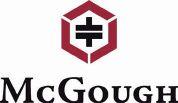
Originally incorporated in 1956 by Peter McGough and his six sons, all descendants of an Irish family of master craftsmen, the firm remains a family-owned company today.
McGough is headquartered in St. Paul with branch offices in Fargo, N.D.; Des Moines and Cedar Rapids, Iowa; Rochester, Duluth and St. Cloud, Minn.; and Dallas, all of which facilitate project development and construction activities nationwide.
WEBSITE: mcgough.com
HEADQUARTERS:
Key locations in Devils Lake, N.D., and Fargo, N.D.

EMPLOYEES:
162 (full-time)
DESCRIPTION: MetroPlains Management strives to meet the goals of owners and investors while providing the best possible environment for residents.
Since 1983, its client list has included financial institutions, private partnerships, sole owners and affordable state and government program administrators. Today, the firm has grown to more than 300 full-time and part-time employees who manage 5,500 housing units in five Midwestern states. Its portfolio is diverse, ranging from high-end luxury housing to tax credit and affordable housing. With more than 150 years of combined property management experience, the MetroPlains team’s expertise ranges from managing single-owner assets to complex financial and partnership structures in both rural and urban settings.
WEBSITE: metroplains.com
HEADQUARTERS: Bismarck, N.D.
EMPLOYEES: 12,353 nationwide, 1,029 in North Dakota
DESCRIPTION: MDU Resources Group started in 1924 as a small electric utility company serving communities on the Montana-North Dakota border. Today, it is a multibillion-dollar corporation doing business in 48 states.
It delivers the natural gas and electricity that power business, industry and people’s daily lives. It builds the pipes and wires that connect homes, factories, offices and stores. It constructs the transportation network of roads, highways and airports that keeps the economy moving. It provides these essential products and services through two lines of business: regulated energy delivery and construction materials and services.
MDU Resources is the largest publicly traded company headquartered in North Dakota, with stock trading since 1948 under the symbol MDU on the New York Stock Exchange.
WEBSITE: mdu.com

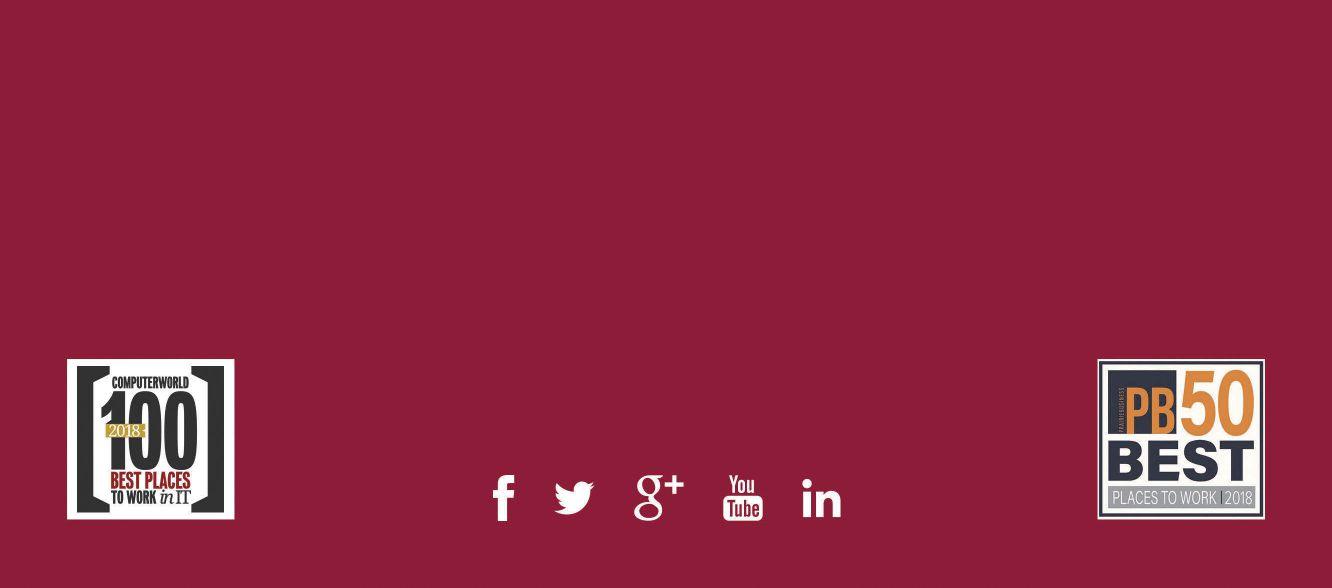


HEADQUARTERS: Bismarck, N.D.
HEADQUARTERS: Minneapolis, Minn.
EMPLOYEES: 1,426 full-time, 202 part-time
DESCRIPTION: Founded in 1931, Midco is the leading provider of internet and networking, cable TV, phone, data center and managed services, home automation and advertising services in the Midwest.
More than 385,000 residential and business customers count on Midco services in 342 communities in Kansas, Minnesota, North Dakota, South Dakota and Wisconsin. Visit Midco.com to learn more about Midco and how the company gives back to the communities it serves.
WEBSITE: Midco.com

HEADQUARTERS: West Fargo, N.D.
EMPLOYEES: 160
DESCRIPTION: With a presence in more than 100 communities, Moore Engineering is a partner in progress across the region. We’re passionate about finding sustainable solutions to the challenges communities face, always respecting resources and designing projects that fit.
As a 100 percent employee-owned company, we are in this together. We’re a team that holds each other accountable and helps each other out to fulfill our mission of improving lives by building strong communities.
WEBSITE: MooreEngineeringInc.com
EMPLOYEES: 116 full time, 321 part time and 12 seasonal
DESCRIPTION: The Missouri Valley Family YMCA is a powerful nonprofit association of men, women and children joined together by a shared commitment to nurturing the potential of kids, promoting healthy living and fostering a sense of social responsibility.
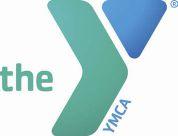

We offer careers that provide a diverse group of people the chance to strengthen the community while also positively impacting their own lives.
WEBSITE: BismarckYMCA.org



















HEADQUARTERS:
Bismarck, N.D., with 12 other locations in North Dakota and four in Minnesota

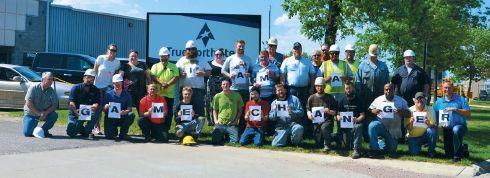
EMPLOYEES: 135

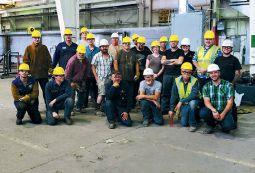
DESCRIPTION: Founded in 1955, North Dakota Guaranty & Title Co. began as a three-person operation committed to providing quality service to the Bismarck community. Today, we are comprised of 17 locations across North Dakota and western Minnesota.





Together, our companies – North Dakota Guaranty & Title Co., Grand Forks Guaranty & Title Co., Consolidated Title Services, Strander Guaranty & Title Co. and Pennington Guaranty & Title Co. – create the title team: experienced professionals who offer complete title services.
Team members go the extra mile to help coordinate and complete real estate closing and title services in North Dakota and Minnesota; from mobile homes to multi-billion dollar commercial projects.

WEBSITE: TheTitleTeam.com


HEADQUARTERS: Fargo, N.D.
EMPLOYEES: 73
DESCRIPTION: Network Center, Inc., provides cutting-edge technology solutions that help propel your organization while preparing you for the future.

Serving 12 states and more than 500 customers, NCI is one of the largest IT solution providers in the Midwest. We specialize in industry-specific technology solutions, service, support and expertise for small to enterprise businesses.
In 2015, NCI enhanced its culture by becoming a 100 percent employee-owned company. Thanks to this implementation of an Employee Stock Ownership Plan (ESOP), NCI employees can share in the company’s growth and success.
WEBSITE: Netcenter.net

HEADQUARTERS:
Bismarck, N.D., with a branch in Fargo, N.D.
EMPLOYEES: 17, plus contractors

DESCRIPTION: Nexus Innovations is a strategic consulting firm that helps clients win by delivering strategic technology solutions. We serve every client with a customized approach to ensure that organizational goals, business requirements and cultural impacts are both understood and addressed.

We have emerged as one of the leading strategic IT consulting firms in the region. The reason goes beyond delivering an outstanding product; the difference is our people, and the trust we build with every client.
Our team is highly proficient and certified across a variety of technologies, disciplines and management strategies. And as a Microsoft Certified Partner, we’ve become a “go-to” consultant for SharePoint, Business Intelligence, process analysis and automation, project management and customized .NET software solutions.
WEBSITE: NexusInnovations.com
Our multidisciplinary team of over 200 provides practical, pioneering solutions to the world’s energy and environmental challenges.
www.undeerc.org
HEADQUARTERS:
Mandan, N.D.
EMPLOYEES: 1,259
DESCRIPTION: National Information Solutions Cooperative (NISC) is an information technology cooperative that develops, implements and supports software and hardware solutions for our members/customers.

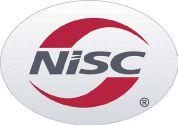
NISC is an industry leader, delivering advanced solutions, services and support to more than 860 independent telephone companies, electric cooperatives and other public power entities. With facilities in Mandan, N.D., Lake Saint Louis, Mo., Cedar Rapids, Iowa and Shawano, Wis., NISC and its subsidiaries employ more than 1,200 professionals.
WEBSITE: NISC.coop
HEADQUARTERS:
Fargo, N.D.
EMPLOYEES: 63
DESCRIPTION: Obermiller Nelson Engineering (ONE) delivers success to its clients by providing professional, detailed mechanical, electrical and civil design and coordination for building systems.
Since 1992, ONE’s clients have received the full attention of professional, knowledgeable engineers through every phase of their project.
ONE’s team members provide the workforce and experience to accommodate several different project types. With licensed mechanical engineers, electrical engineers, civil engineers, fire protection engineers and LEED-accredited professionals on staff, ONE provides clients with the highest quality of engineering services.
WEBSITE: obernel.com


HEADQUARTERS:
Currently have locations in Fargo, N.D., and Bismarck, N.D.
EMPLOYEES: 91
DESCRIPTION: We exist for one reason: to help your child laugh, love and live life to its fullest.
Your child deserves the best. Our dedicated team of professionals collaborate to help your children reach their highest potential.
We provide the most comprehensive and advanced services specializing in neurobehavior, applied behavior analysis, mental health, early intervention, occupational, physical and speech-language services.
Choose the best for your child and your family. Choose Pediatric Partners.
WEBSITE: PediatricTherapyPartners.com

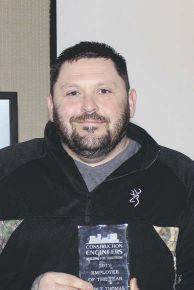










HEADQUARTERS: Moorhead, Minn.
EMPLOYEES: 36
DESCRIPTION: Sandman Structural Engineers is focused on delivering the highest quality structural engineering services and building strong, honest relationships with clients. A positive culture of making things right and winning together through innovation and service are paramount to providing our clients with cost-effective building solutions. Our team of professional engineers are registered in nearly every state and multiple Canadian provinces.

WEBSITE: SandmanSE.com

HEADQUARTERS: Bismarck, N.D.
EMPLOYEES: 248
DESCRIPTION: Starion Bank is family-owned and offers a full range of services, including personal and business banking, agribusiness, mortgage, insurance and investments. Serving customers since 1969, the $1.25 billion bank – with 12 branches in North Dakota and three in Wisconsin – offers the sophisticated products, services and technology available at larger banks, with the personal service found at community banks.
Starion Bank is committed to helping customers achieve their goals and strives to take its communities farther.
WEBSITE: StarionBank.com
We’re proud of our employees for their commitment to our local communities. In fact, we encourage them to volunteer for service organizations and charitable projects during work hours. Thank you to our employees for naming us one of the Top 50 Places to Work. We attribute this accolade to hiring and supporting exceptional people who care. It’s one of the ways you know that You can bank on us
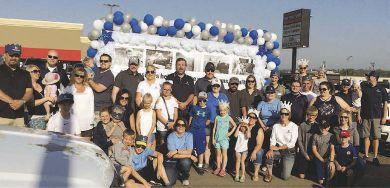
McGough is honored to be one of Prairie Business’ 50 Best Places to Work. Learn more about our remarkable people! www.mcgough.com
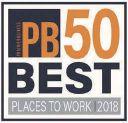

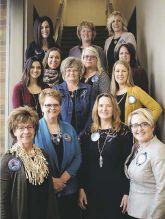
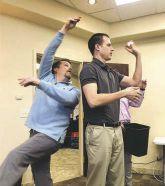


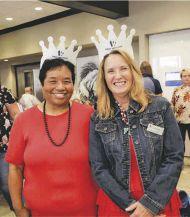
building for the next generation
HEADQUARTERS: Dickinson, N.D.
EMPLOYEES: 425
DESCRIPTION: Steffes is a lean-operating original-equipment manufacturer headquartered in Dickinson, N.D., with additional manufacturing facilities in Grand Forks, N.D. We specialize in steel fabrication and electrical services for a variety of diverse industries, including oil and gas, contract manufacturing and electric thermal storage. With a creative team of experienced engineers and manufacturing experts, our ability to innovate and solve complex issues is unmatched in the manufacturing industry.
WEBSITE: Steffes.com

HEADQUARTERS: Barnesville, Minn.
EMPLOYEES: 130

DESCRIPTION: Stoneridge Software is the largest Microsoft Gold ERP Partner in the region. As a business technology firm with specialties across the entire Microsoft Dynamics suite of accounting and operations and CRM products, Stoneridge focuses on attracting the most knowledgeable experts in the field to provide stellar solutions that deliver maximum business impact.
Stoneridge has industry expertise in manufacturing, agriculture, construction, engineering, distribution and professional services.
WEBSITE: StoneridgeSoftware.com


What makes a company one of the best places to work? While many things make an employer outstanding, employees of Moore Engineering know it’s more than pay and benefits. It’s a supportive, energized, productive workplace. It’s a shared responsibility for helping Moore grow and flourish. It’s working alongside fellow employee owners who feel more like family.

THAT’S what makes Moore a great place to work.





100% Employee-Owned


HEADQUARTERS: Fargo, N.D.
EMPLOYEES: 100
DESCRIPTION: Stronger brands. Stronger bottom lines. For more than 20 years, Sundog Interactive has been an industry leader in marketing and technology, specializing in manufacturing and B2B.
With 100-plus certifications in Salesforce and Sitecore, the company specializes in marketing strategy, lead management, analytics, technical integration and more.
Known for its culture, Sundog has been named to the Inc. 500/5000 list of the nation’s fastest-growing companies three times and named a Best Place to Work by Advertising Age.


WEBSITE: SundogInteractive.com
HEADQUARTERS: Avon, S.D.
EMPLOYEES: 14
DESCRIPTION: Swier Law Firm is a sophisticated law firm that delivers creative legal solutions to a wide array of clients, from individuals in rural South Dakota to small businesses, government entities and Fortune 100 companies.
With dedicated practice groups focused on specific legal issues, we thrive on delivering exceptional service for clients with high expectations.
With offices across South Dakota, we stand apart based on our nationally-recognized experience, responsiveness and results while keeping our clients’ needs in mind.
WEBSITE: SwierLaw.com
THANK YOU TO OUR SANDMAN TEAM MEMBERS FOR MAKING SANDMAN STRUCTURAL ENGINEERS ONE OF THE 50 BEST PLACES TO WORK!



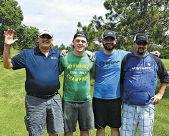

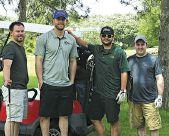


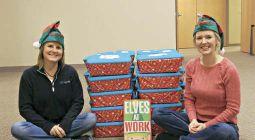
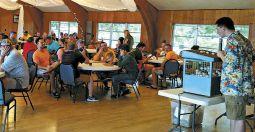

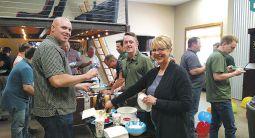
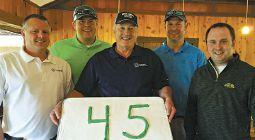
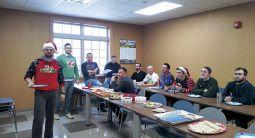

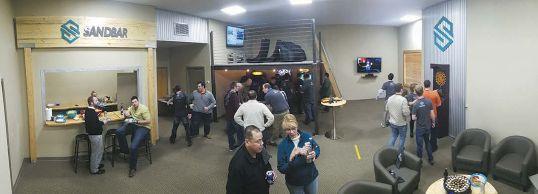
We INNOVATE We WIN TOGETHER We MAKE IT RIGHT




HEADQUARTERS: West Fargo, N.D.
EMPLOYEES: 600
DESCRIPTION: TrueNorth Steel is an organization with a Game Changer culture, driven by committed team members with a shared vision over the past 73 years.



We are an industry leader in steel manufacturing through the Midwest and Rocky Mountain area, producing structural steel, bridges, ag tanks, oil tanks and stormwater and drainage solutions for our clients.
We put POSITIVITY back into the workplace!
WEBSITE: TrueNorthSteel.com
ULTEIG
HEADQUARTERS: Fargo, N.D.
EMPLOYEES: 375
DESCRIPTION: Ulteig is an employee-owned company that delivers comprehensive design engineering, program management and technical and field services that strengthen infrastructure vital to everyday life.
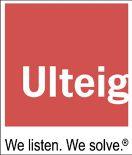
Ulteig connects people and resources to develop compelling, integrated solutions across multiple Lifeline Sectors®, including power, renewables, transportation and water. Headquartered in Fargo, Ulteig’s footprint spans the country and leverages its expertise with a wide range of public and private clients who ultimately bring essential services to millions.
WEBSITE: Ulteig.com

HEADQUARTERS: Wahpeton, N.D.
EMPLOYEES: 192
DESCRIPTION: The strength of WCCO Belting comes from a long-term perspective, stable leadership and a solid identity drawn from traditions and values that are deeply rooted in the history of the Shorma family business.

Our open culture is dedicated to employee engagement and empowerment. If you are interested in a career with an innovative, growing company that designs, manufactures, and ships custom rubber belting products worldwide, we are always looking for great people.
WEBSITE: wccobelt.com
HEADQUARTERS: Mitchell, S.D.
EMPLOYEES: 143
DESCRIPTION: Dakota Wesleyan University is a four-year liberal arts college in Mitchell, S.D., affiliated with the Dakotas Conference of the United Methodist Church.


DWU prepares graduates to enter the workforce with realworld experience and exposure to the newest technology. Founded in 1885, DWU holds to its values of learning, leadership, faith and service. DWU strives to create servant leaders by empowering students, faculty and staff to make a difference through genuine and meaningful service.
WEBSITE: dwu.edu









CRAIG CULVER, CO-FOUNDER AND CHAIRMAN OF THE BOARD AT CULVER’S RESTAURANTS, WAS A FEATURED SPEAKER AT THE 2018 PRAIRIE FAMILY BUSINESS ANNUAL CONFERENCE, WHICH WAS HELD IN APRIL IN SIOUX FALLS, S.D.

IMAGE: PRAIRIE FAMILY BUSINESS ASSOCIATION
SIOUX FALLS, S.D. – A company owned by a husband and wife, both of whom were getting on in years. An assortment of children and other relatives. An uncertain inheritance-tax and business environment.
And then, a catalyst: a retreat on transition planning, organized by the Prairie Family Business Association, an outreach program of the University of South Dakota.
From that 2008 retreat, a stronger Lloyd Companies of Sioux Falls emerged, one that not only remains family-owned but also has leveraged multiple family members’ talents into growing the 165-employee firm, company officials say.
What would have happened if the association had not offered the retreat?
“I’m pretty sure we would have sold the company,” said Christie Lloyd Ernst, Lloyd Companies’ senior vice president for property management.
“I mean, I really am, because of my parents and our family’s circumstances at the time. But because of the work we accomplished at that retreat, today we’re not just talking about transitioning it to my generation, we’re looking at how can we make this a true legacy that we can pass onto future generations.
“I think the Prairie Family Business Association saved our business at the end of the day.”
From its office in University Center in Sioux Falls, the association with its three-person staff plans meetings, sponsors workshops and organizes other activities to help owners
meet the unique challenges of running a family business.
“We serve South Dakota, North Dakota, Iowa, Nebraska and Minnesota, and we’re the only association like this in this part of the country,” said Laura Schoen Carbonneau, executive director.
“We really focus on family businesses, which means providing resources and education so that they can continue to grow and flourish, and especially so that the families can hand down that business from one generation to the next.”
Accomplishing that transition is much easier said than done. That’s because a family-owned business is – well, family owned, Schoen Carbonneau said.
MORE ON: Page 66

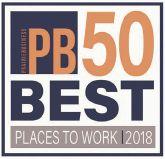

“If you’re the owner, then you’re working with your parents or your children or your cousins or your grandchildren. You have all of these family dynamics that come into play that you typically don’t have in a traditional business setting.
“And some of those dynamics are positive, while others can be a bit of a challenge to work through.”
That’s where the association comes in. Over the course of its 25-year partnership with USD, the association (which now counts 206 members) has thrived by targeting its services to family-owned businesses and their specific concerns.
Moffatt Products in Watertown, S.D., is one such company.
“We’re a 64-year-old manufacturing business,” said Dave Moffatt, company president.
“My dad started the business in Minneapolis in our basement. Today, we have second and third generations working in the business and loads of Generation Four grandchildren.”
Moffatt’s father, Dillon Moffatt, was an original sponsor of the Prairie Family Business Association at the organization’s founding. But the company and the association lost touch until 2014, when Dave Moffatt’s own sons expressed interest in joining the company.
“I was excited to discover that the association had become exactly what my father and others had envisioned: a practical, broad-based group, one that’s dedicated to family businesses and has very reasonable membership fees.
“We dove into everything and have been doing so ever since.”
The association’s services include:
• The annual Family Business Conference in Sioux Falls and North Dakota Business Forum, which rotates between Fargo and Bismarck.
At the Sioux Falls-based conference in April, a sellout crowd of more than 300 spent two days attending talks and workshops on such topics as Succession and Estate Planning, Family Relationships in Family Businesses and Building the Advisory Board of Your Dreams.



• Affinity peer groups. This unique and confidential service is one of the association’s most valuable, said Ernst of Lloyd Companies, who’s also a member and past chair of the association’s advisory board.
An affinity peer group is a group of about five to eight association members. The group meets periodically with each other and a professional advisor. The point is not just to talk about what’s going on in the businesses, but also to dig into each family’s dynamics, find answers and learn from each others’ experiences.
“I’m in an affinity group, my mom has been in one and my younger sister is in one as well,” Ernst said.
“It’s tough to talk about what’s going on in the business with my husband, because I don’t really want to bring all of that home. And there’s no one at work you can talk with, except for your siblings.
“And you can’t really talk about your siblings with them, either!” she said with a laugh.
“So the group gives me an outlet to work through some of the things that you deal with in a family business. It has been a huge part of the association for me.”






• Family business retreats. These intense, two- or three-day experiences see five or six families gather at an area resort, along with a facilitator for each family.

“There’s a keynote speaker and then breakout sessions with your own facilitator to work on your own family’s issues,” said Moffatt of Moffatt Products.
“It’s very intense, but also very productive, as it’s tailored to your own family and business.”
In his family’s case, “our facilitator said we’d be pushing fast forward on our transition planning, and that’s exactly what we did,” Moffatt said.
“We broke through into discussions that we just hadn’t been having, and we developed our vision for the next few years. We accomplished in one weekend what it would have taken 18 months to get through.”
• Live case studies, in which family business members meet with a group of professional advisors – attorneys, accountants, business strategists and the like – for high-level analysis and advice.
• Plus classes, webinars, awards and other services for members. Through its work, the association helps families keep their
companies – and in doing so, it helps communities keep those families, Moffatt said.
“If you think about it, we’re constantly talking about the brain drain in South Dakota, about educating our children and having them leave the state,” Moffatt said.
“The association helps create a way for these local businesses to stay in the family and to thrive. As a result, that next generation of of leaders is more likely to stay.”
To sum up, the Prairie Family Business Association “is an amazing resource with a phenomenal staff,” Moffatt said.
“It enhances the ‘family-ness’ of your business, which is a force you can harness to be uniquely competitive. You can see the results in your own business right away; and through successful transition planning, those results can last for all time.”
Tom Dennis Editor, Prairie Business 701-780-1276tdennis@prairiebusinessmagazine.com

First Western Bank & Trust Minot, N.D.
WHERE DID YOU GO TO COLLEGE?
Minot State University
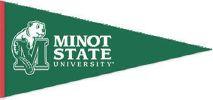
WHAT DID YOU MAJOR IN?
I initially attended Minot State and completed an associate’s degree in legal and general secretarial studies. I returned to obtain a bachelor’s degree in accounting with a concentration in banking and finance.
HOW HAS YOUR MAJOR INFLUENCED YOUR CAREER?
The education I received has provided me with the knowledge and skills needed to excel in my career. I just completed my 37th year in banking and enjoy every day.
Pat McAdaragh President & CEO Midco Minneapolis, Minn.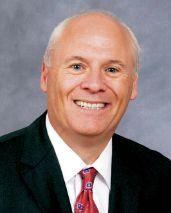
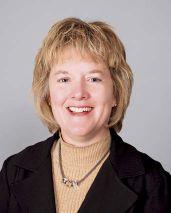
WHERE DID YOU GO TO COLLEGE?
Augustana University in Sioux Falls, S.D.

WHAT DID YOU MAJOR IN?
Accounting
HOW HAS YOUR COLLEGE MAJOR INFLUENCED YOUR CAREER?
My first job was as a staff accountant for Midco. My college major prepared me to be a successful accountant for any type of organization.
WHAT ARE SOME OF THE MOST USEFUL LESSONS YOU LEARNED IN COLLEGE?
continued from Page 28.
WHAT ARE SOME OF THE MOST USEFUL LESSONS YOU LEARNED IN COLLEGE?
Learning how to work on a team through group projects stands out to me. I have experienced a tremendous amount of satisfaction in working with teams to accomplish common goals.
People can accomplish greater success when they work together. Communication, organization, accuracy, follow-through and hard work have been key elements throughout my career, and I learned to use those skills as I obtained my degrees.
WHAT ARE YOUR THOUGHTS ABOUT THE LIBERAL ARTS?
The liberal arts are important because they help students be well rounded, creative and good at problem solving and oral communication.
If students have the chance to also take business and technology courses, I’d recommend that they do so as those courses will enhance their career options.
The single most useful lesson was this: Do what what you need to do before you do what you want to do. Delaying gratification requires self-discipline, something I improved at each year while in college.
I received a liberal arts education at Augustana, and the liberal arts coursework helped me to become a well-rounded person. The literature, English, history, math and social sciences broadened my knowledge and helped me become more intellectually curious.
In my organizational behavior class, we studied leadership by doing case studies and forming mock management teams. That helped me better understand how people work together, and how leaders are identified in groups.
WHAT ARE YOUR
I am a big believer in getting a liberal arts education, with a major caveat: one size does not fit all. With four- and two-year degrees becoming more expensive, I strongly encourage college students to be very aware of their own personal balance sheet (still some accountant in me).
By personal balance sheet, I mean “what you own minus what you owe.”
Earning a college degree is really an investment in oneself, an investment in which the costs occur before the financial benefit is received.
So, going into debt to earn a degree for which there are no jobs or only low-paying jobs is not a good plan. Students pursuing liberalarts majors need to develop a career plan in which the major helps with the career choice (teacher, lawyer, writer and so on).
Choosing such a major simply because one likes it, but without a career plan, may make it tougher for the student to find a good job.
WHERE DID YOU GO TO COLLEGE?
University of Iowa
WHAT DID YOU MAJOR IN?
Finance
HOW HAS YOUR COLLEGE MAJOR INFLUENCED YOUR CAREER?
Being part of a family business, I knew that I was most likely headed down the path of insurance, so I enrolled in the finance/ insurance program at the University of Iowa.
 Eric Sivertsen CEO/partner
Eric Sivertsen CEO/partner
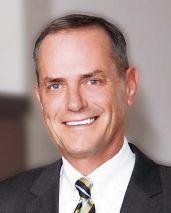
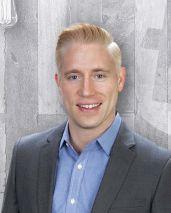
Epicosity Sioux Falls, S.D.
WHERE DID YOU GO TO COLLEGE?
University of South Dakota

WHAT DID YOU MAJOR IN?
Short answer: business administration. Long answer: My counselor in college called me a “strange duck.” I took a bunch of business IT, marketing, finance and other classes to get a well-rounded education. This was before there was an entrepreneurship major or track.
I haven’t compared my classes with what an entrepreneurial major is now, but I sense they’d be very similar.
HOW HAS YOUR MAJOR INFLUENCED YOUR CAREER?
My major was important because I got a well-rounded education that prepared me to be an entrepreneur.
I think the most important lesson I learned was determination. I was never gifted in math, so being a finance major was very hard. I spent a lot of time in the math tutoring department, struggling but determined to understand algebra and calculus.
I can still remember the day that things started to click – and from that point on, I felt like I could actually graduate with a finance degree.
I also learned that you need to finish what you start. Nobody ever graduates from college without finishing things, whether it’s a paper or a test. You can’t pass a class without finishing the process.
I continue to remind myself of that lesson to this day. If we don’t finish what we start, we can never win.
Any degree shows commitment and accomplishment. We can teach specific insurance knowledge, and in many cases, we like to find candidates who have a general knowledge but a willingness and hunger to learn our industry.
Some of our most valuable employees have varied backgrounds that have nothing to do with insurance. It’s really the passion that we look for.
I wore a lot of hats when I started Epicosity, and although I don’t “do it all” any more, I advise everyone in the company. My background has helped me prepare for this.
In addition, I was extremely involved in clubs in college, which was the most valuable part of my college experience. I would apply things I learned in the classroom sometimes the same day. Last but not least, I worked a lot during college and did two internships. Classes provided the knowledge, and experiences outside the classroom provided the laboratory.
WHAT ARE SOME OF THE MOST USEFUL LESSONS YOU LEARNED IN COLLEGE?
Hard work pays off. College taught me how to learn at a high level, which I still have to do today to keep Epicosity moving forward.
WHAT ARE YOUR THOUGHTS ABOUT THE LIBERAL ARTS?
I tell students, “Know what your destination is, or at least have a sense of what you want to do with your career.”
Talk about your future with family, friends and yourself. I debated constantly about my future before and during college. That is why I had a clear-enough vision of what I wanted to do: I had spent the past four years talking about it and weighing options.
Some people don’t want to talk about this because of uncertainty, but discussion helps to clear up uncertainty and provide next steps.
SDSU Foundation names three

BROOKINGS, S.D. – The South Dakota State University Foundation recently named three people to new roles.
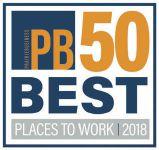

• Carolyn Poss is the foundation’s director of development administration. Poss previously joined the organization in 2015 as the gift planning coordinator. In her new role, she’ll oversee a team of coordinators as they support the development functions of the foundation.
• Jillian Eldridge was promoted to scholarship coordinator. In that role, Eldridge helps administer the nearly 2,000 scholarships funded through the foundation. The 2014 SDSU graduate joined the foundation in May 2016.

• Darcie Van Ede is the executive assistant to the vice president for development.
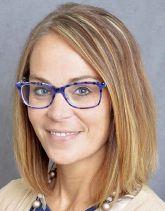
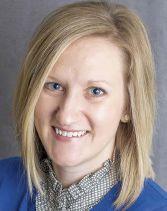
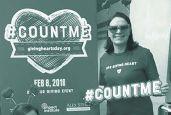
Van Ede joined the foundation in early July. She holds a bachelor’s degree in business management from the University of Sioux Falls.
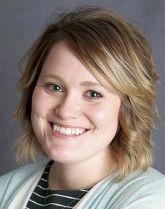
www.bismarckymca.org
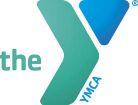
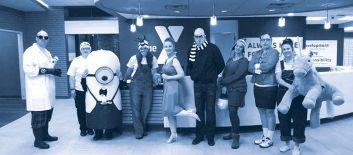


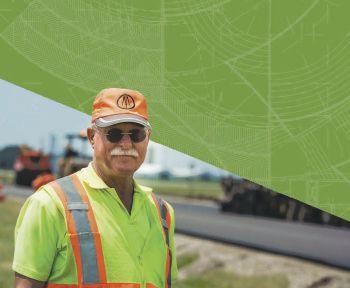
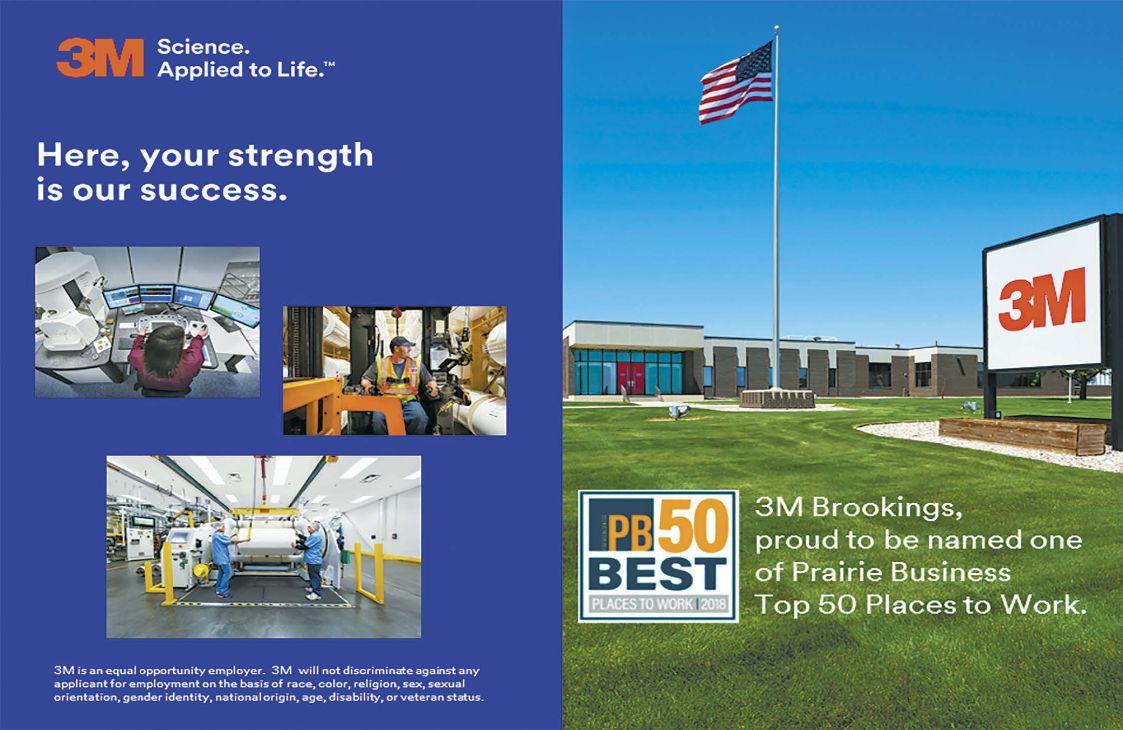
MITCHELL, S.D. – Mark Vaux, executive vice president of business development for the Greater Fargo Moorhead Economic Development Corp., has accepted the executive director position at the Mitchell Area Development Corp. and the Mitchell Area Chamber of Commerce in Mitchell, S.D. Before working for the GFMEDC, Vaux was the economic development and community services director for West Fargo, N.D. He also served as a business development representative for the state of South Dakota and as area director for former U.S. Rep. (now Sen.) John Thune, R-S.D.
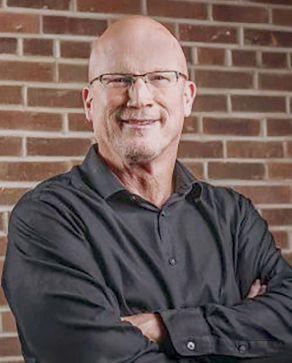 Mark Vaux
Mark Vaux



GRAND FORKS, N.D. – University of North Dakota President Mark Kennedy has appointed Meloney Golombiecki Linder to serve as vice president for marketing and communications. Linder will oversee marketing and creative services; video production; UND’s web presence and digital media. Linder has served as associate dean for communications, facilities and technology and chief communication officer for the University of Wisconsin (Madison) School of Business. Before that, she was the vice president of institutional advancement at the University of Texas at Brownsville.
A native of Fergus Falls, Minn., Linder holds a bachelor’s degree in mass communication with an emphasis in public relations from the University of Denver and a master’s degree in organizational management from Ashford University.



BISMARCK, N.D. – Kraus-Anderson Construction has hired John Brashears as superintendent in the company’s Bismarck office.

Brashears comes to KA with more than 30 years of construction management experience. He previously served as superintendent with Consolidated Construction Co. in Bismarck. He also was the owner and operator of Oxbow Bend, a company whose truck fleet relocated oil-drilling rigs and transported brine water and crude oil.

 Meloney Golombiecki Linder
John Brashears
Meloney Golombiecki Linder
John Brashears
MINOT, N.D. – Cole Jones has joined the Ackerman-Estvold Minot office as a civil engineer.
Jones earned a bachelor’s degree in civil engineering from North Dakota State University. He has worked in the Minot office as a seasonal intern for the past four summers. He’ll be working in the construction group providing inspection on the Mouse River Enhanced Flood Protection Project.

ABERDEEN, SD – Dacotah Bank has promoted David Sandvig to senior vice president and chief relationship officer.
In his new role, Sandvig will serve as a member of the bank’s Steering Committee as a strategic communication bridge, connecting strategies and activities of several departments within the company and aligning efforts with the bank’s strategic plan.

Before his promotion, Sandvig served as a wealth advisor for Dacotah Bank.

What effect do you foresee automation and robotics having on our regional workforce?

Automation is transforming the workplace by making many existing jobs obsolete, as it creates jobs that have not existed previously.
Those already in the workforce need onramps to learn new skills to remain relevant as these new workplaces evolve. Those entering the workforce need both professional skills for fast-paced technologically savvy decision making, and cutting edge technical skills.
Workers can earn certificates and/or degrees through online classes offering state-of-the-art simulations in fields such as mechanical maintenance, where BSC students don’t just learn to weld, they learn to program automated welders.
Education’s best response to this transformation is to develop education/industry partnerships. This collaboration will lead to a more flexible, resilient workforce and a brighter future for our region.
Automation is introduced to save labor, improve quality and increase productivity. Workers previously occupied with repetitive and monotonous tasks can focus their efforts in new ways.
Automation requires an intelligent, highly-skilled workforce for installation, operation and maintenance. To acquire the knowledge and skills associated with automated technologies, many in the workforce will need additional training.
Individuals versed in robotics, computers, electronics, pneumatics and mechanical systems are in high demand as companies add more automated technologies.
Thief River Falls, East Grand Forks and Roseau, Minn.

Automation and robotics will impact our future workforce. Unemployment is low in South Dakota, yet there are hundreds of jobs waiting to be filled in which automation and robotics systems could ease workforce demand.
By implementing these practices, our graduates – who are trained to program and maintain the automation and robotic systems – will contribute to a stronger, more efficient workforce. People are scared that bringing in robots and automated systems will result in replacing people’s jobs, but it won’t. Jobs will evolve, but they won’t be eliminated.
Skill sets involving automation and robotics will be vital in creating new, technical occupations for a more efficient and productive future workforce.
Steve JohnsonManufacturing Department Chair
North Dakota State College of Science
Wahpeton, N.D.
Brooks Jacobsen
Lake Area Technical Institute
Watertown, S.D.
North Dakota has a significant shortage of both skilled and unskilled labor in the manufacturing market.

The largest effect of automation will come in positions that require low-skill, repetitive-motion tasks such as machine loading, part cleaning and deburring. Robots and automated systems are a viable alternative for these repetitive tasks. These types of jobs are hard to fill and typically have a high turnover rate.
Meanwhile, the increasing use of automation and robotics will continue to provide a plethora of opportunities to the technicians who integrate, program, troubleshoot and service these automated systems. These are high-skilled and high-paying jobs that will be in great demand over the next several decades.
The question is not the quantity of new jobs created, but their quality. Automation – “skill-biased technical change” – tends to replace lesseducated workers performing routine tasks, while it creates new demand for more-educated workers performing more complex analyses or engaging in social interactions and communication.
As Baby Boomers continue to retire, employers’ difficulties in filling middle-wage positions likely will grow, creating more opportunities for workers who gain the specific skills needed for these jobs.
The middle skill/middle wage jobs will replace the production and clerical jobs currently held by workers with high school or less education. I think we will see this in health care, advanced manufacturing and information technology.
A whole new set of jobs related to operation, maintenance, repair and programming the robotic and AI devices is being created, and a skilled workforce is needed.
Doug Darling
President
Lake Region State College
Devils Lake, N.D.
Source: FRED/Federal Reserve Bank of St. Louis
Creighton University Business Conditions Index
U.S. Mid-America
“The July Business Conditions Index, which ranges between 0 and 100, declined to 57.0 from June’s 61.8 and May’s 67.3. This is the 20th straight month the index has remained above growth neutral 50.0, but the second straight month that the index has fallen.”
Source: Creighton University Economic Outlook report
Percentage of households that have a broadband Internet subscription, 2016
nationally & regionally
20162017
North Dakota: 8181

South Dakota: 75 69
Minnesota: 655 718
“Drug overdoses killed about 72,000 Americans last year, a record number that reflects a rise of around 10 percent, according to new preliminary estimates from the Centers for Disease Control. The death toll is higher than the peak yearly death totals from H.I.V., car crashes or gun deaths.”
– The New York Times, Aug. 15, 2018
Overdose deaths in thousands in preceding 12 months, nationwide
Source: Centers for Disease Control
Percentage of households with computer and
Source: U.S. Census Bureau’s American Community Survey Reports, August 2018.
Number of slots for children under 6, across all providers types (2002=100). Source: Minnesota Department of Human Services











